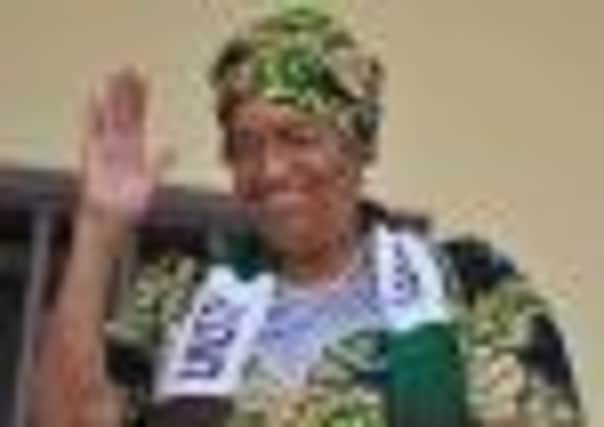Nobel Peace Prize is awarded to three women of courage


The award was split three ways between Liberian president Ellen Johnson Sirleaf, women’s rights activist Leymah Gbowee from the same African country and democracy activist Tawakkul Karman of Yemen – the first Arab woman to win the prize.
The chairman of the Norwegian Nobel Committee, Thorbjørn Jagland, said that Ms Karman’s award should be seen as a signal that both women and Islam have important roles to play in the Arab spring, the wave of anti-authoritarian revolts that have challenged rulers across the Arab world.
Advertisement
Hide AdAdvertisement
Hide Ad“The Arab spring cannot be successful without including the women in it,” he said.
Yemen is an extremely conservative society but a feature of the revolt there has been a prominent role for women who turned out for protests in large numbers.
The uprising has, however, been one of the least successful, failing to unseat president Ali Abdullah Saleh as the country descends into failed state status and armed groups take increasingly important roles.
In Libya’s and Syria’s uprisings, women have been largely absent. While there were many women protesters in Egypt’s revolution, few had key leadership positions.
On 23 January, Ms Karman was arrested at her home. After widespread protests against her detention – it is rare for Yemen women to be taken to jail – she was released early the next day.
She has been dubbed “Iron Woman, “The Mother of Revolution” and “The Spirit of the Yemeni Revolution” by fellow protesters.
No woman had won the prize since 2004, when the committee recognised Wangari Maathai of Kenya, who died last month at 71. That was also the last year the prize went to an African.
Liberia was ravaged by civil wars for years until 2003. The drawn-out conflict that began in 1989 left about 200,000 people dead and displaced half the country’s population of three million.
Advertisement
Hide AdAdvertisement
Hide AdMs Sirleaf, 72, became Africa’s first democratically elected female leader in 2005. She was seen as a reformer and peacemaker in Liberia when she took office.
She is running for re-election on Tuesday and opponents in the presidential campaign have accused her of buying votes and using government funds to campaign – a charge her camp denies.
“This gives me a stronger commitment to work for reconciliation,” she said yesterday. “Liberians should be proud.”
Ms Gbowee, who organised a group of Christian and Muslim women to challenge Liberia’s warlords, was honoured for mobilising women “across ethnic and religious dividing lines to bring an end to the long war in Liberia, and to ensure women’s participation in elections”.
She has long campaigned for the rights of women and against male violence.
In 2003, she led hundreds of female protesters through Monrovia to demand swift disarmament of fighters who preyed on women throughout Liberia during 14 years of near-constant civil war.
Ms Gbowee works in Ghana’s capital as the director of Women Peace and Security Network Africa.
Last year’s peace prize went to imprisoned Chinese dissident Liu Xiaobo.